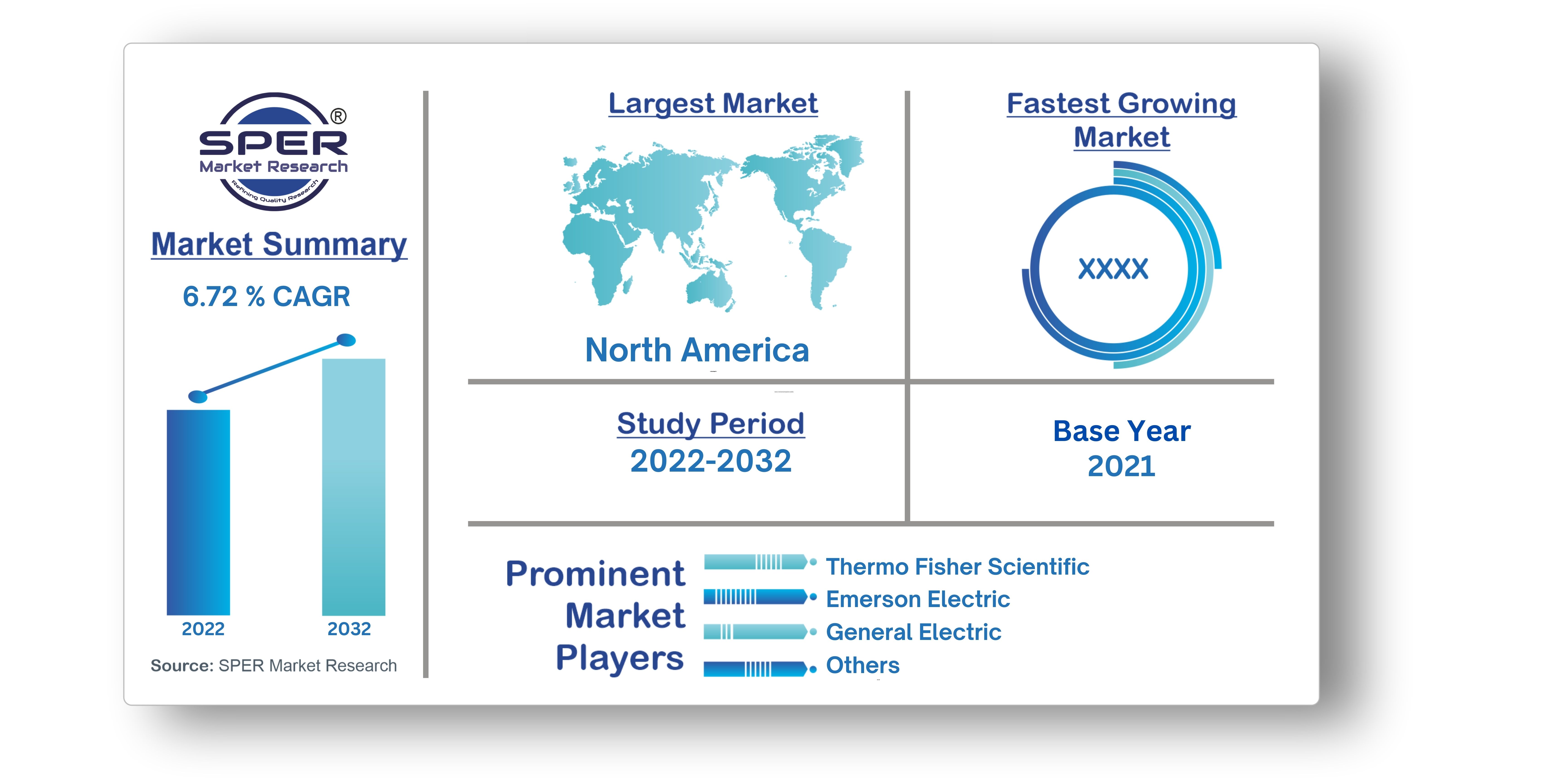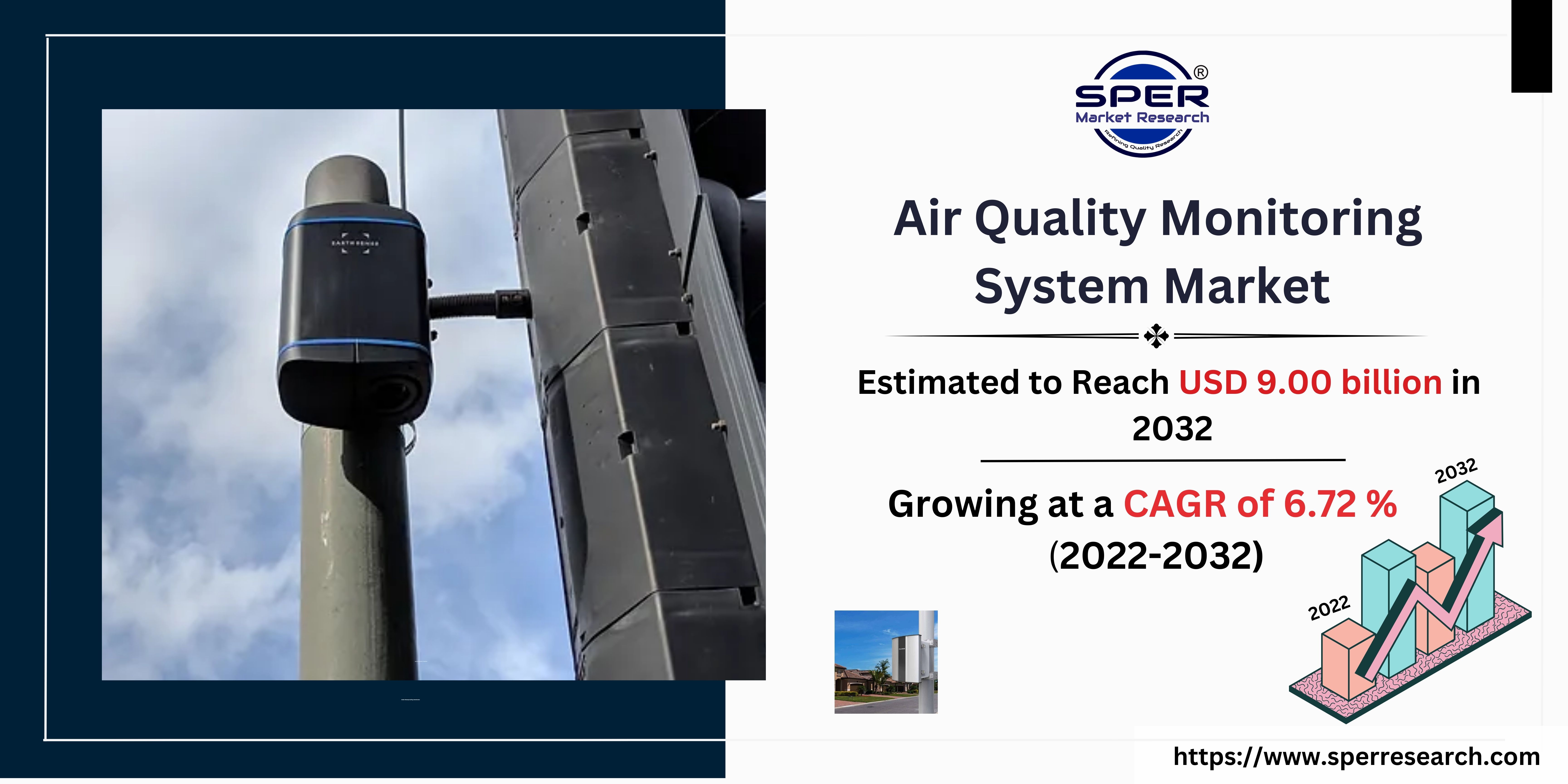
Air Quality Monitoring System Market Growth, Size, Trends, Demand, Share and Future Outlook
Air Quality Monitoring System Market Size- By Sampling Method, By Pollutant, By Product, By End-User- Regional Outlook, Competitive Strategies and Segment Forecast to 2032
| Published: Apr-2023 | Report ID: IACT2380 | Pages: 1 - 235 | Formats*: |
| Category : Information & Communications Technology | |||
- October 2021: With a three-year deal, Ricardo, a leading engineering, environmental, and strategic consulting business, will offer top air quality data analysis and monitoring in the Middle East. The business will audit, validate data, and provide quality assurance from a world-class monitoring network in the Saudi Arabian capital for the Royal Commission for Riyadh City by integrating with air monitoring equipment vendor Envirozone LLC.
- October 2021: The Geostationary Extended Observations (GeoXO) research, which will provide 3-D atmospheric data sets to US emergency managers and forecasters, has awarded Ball Aerospace & Technologies Corp. a 20-month contract. According to a statement from Ball's vice president, the equipment will increase air quality monitoring in addition to providing real-time situational awareness, helping to lessen the negative effects of pollution on human health.

- Opportunities: The market for air quality monitoring systems has experienced rapid growth over the past few decades, which has been fueled by a number of factors including an increase in environmental pollutants and heightened public awareness of the negative effects on health. With a rise in pollution, ailments like asthma, diabetes, obstructive lung disease, and cardiovascular disease have grown increasingly common. The market for weather condition observing systems has been stimulated by the increased knowledge of the detrimental health impacts. For instance, the WHO releases annual reports on the observation of weather patterns and their effects on health.
- Challenges: The high costs related to the acquisition and installation of AQM sensors are exacerbated by the strict pollution rules, which need effective measures to control all types of weather pollutants, data gathering, and data surveillance. It is therefore anticipated that over the forecast period, the optimal market expansion of AQM stations will be constrained by the high installation costs of AQM stations and the premium price of the sophisticated observation system.

| Report Metric | Details |
| Market size available for years | 2019-2032 |
| Base year considered | 2021 |
| Forecast period | 2022-2032 |
| Segments covered | By Sampling Method, By Pollutant, By Product, By End-User |
| Regions covered | North America, Europe, Asia Specific, Middle East and Africa, South America, Others. |
| Companies Covered | Thermo Fisher Scientific, Emerson Electric, General Electric, Siemens AG, Teledyne Technologies, PerkinElmer Inc., Agilent Technologies Inc., Honeywell International Inc., HORIBA Ltd., TSI Incorporated, Others. |
- Academic Institutions
- Environmental Consulting Firms
- Government Agencies
- Healthcare Facilities
- Industrial Companies
- Residential Users
- Others
| By Sampling Method: |
|
| By Pollutant: |
|
| By Product: |
|
| By End User: |
|
- Size of Global Air Quality Monitoring System Market (FY’2019-FY’2032)
- Overview of Global Air Quality Monitoring System Market
- Segmentation of Air Quality Monitoring System Market By Sampling Method (Active/Continuous Monitoring, Manual Monitoring, Passive Monitoring, Intermittent Monitoring, Stack Monitoring)
- Segmentation of Air Quality Monitoring System Market By Pollutant (Chemical Pollutant, Nitrogen Oxides, Carbon Oxides, Volatile Organic Compounds, Physical Pollutant, Biological Pollutant, Others)
- Segmentation of Air Quality Monitoring System Market By Product (Indoor Monitors, Fixed Indoor Monitors, Portable Indoor Monitors, Outdoor Monitors, Portable Outdoor Monitors, Fixed Outdoor Monitors, Dust & Particulate Matter Monitors, AQM Stations, Wearable Monitors)
- Segmentation of Air Quality Monitoring System Market By End-User (Government Agencies & Academic Institutes, Government and Residential Users, Petrochemical Industry, Power Generation Plants, Pharmaceutical Industry, Smart City Authorities, Others)
- Statistical Snap of Global Air Quality Monitoring System Market
- Global Air Quality Monitoring System Market Growth Analysis
- Problems and Challenges in Global Air Quality Monitoring System Market
- Global Air Quality Monitoring System Market Competitive Landscape
- Impact of COVID-19 and Demonetization on Global Air Quality Monitoring System Market
- Details on Recent Investment in Global Air Quality Monitoring System Market
- Competitive Analysis of Global Air Quality Monitoring System Market
- Major Players in the Global Air Quality Monitoring System Market
- SWOT Analysis of Global Air Quality Monitoring System Market
- Global Air Quality Monitoring System Market Future Outlook and Projections (FY’2019-FY’2032)
- Recommendations from Analyst
1.1. Scope of the report1.2. Market segment analysis
2.1 Research data source2.1.1 Secondary data2.1.2 Primary data2.1.3 SPER’s internal database2.1.4 Premium insight from KOL’s2.2 Market size estimation2.2.1 Top-down and Bottom-up approach2.3 Data triangulation
4.1. Driver, Restraint, Opportunity and Challenges analysis4.1.1 Drivers4.1.2 Restraints4.1.3 Opportunities4.1.4 Challenges4.2. COVID-19 Impacts of the Global Air Quality Monitoring System Market
5.1. SWOT analysis5.1.1 Strengths5.1.2 Weaknesses5.1.3 Opportunities5.1.4 Threats5.2. PESTEL analysis5.2.1 Political landscape5.2.2 Economic landscape5.2.3 Social landscape5.2.4 Technological landscape5.2.5 Environmental landscape5.2.6 Legal landscape5.3. PORTER’S five forces analysis5.3.1 Bargaining power of suppliers5.3.2 Bargaining power of Buyers5.3.3 Threat of Substitute5.3.4 Threat of new entrant5.3.5 Competitive rivalry5.4. Heat map analysis
6.1 Global Air Quality Monitoring System Base Distribution, Sales Area, Product Type6.2 Mergers & Acquisitions, Partnerships, Product Launch, and Collaboration in Global Air Quality Monitoring System Market
7.1 Active/Continuous Monitoring7.2 Manual Monitoring7.3 Passive Monitoring7.4 Intermittent Monitoring7.5 Stack Monitoring7.6 Others
8.1 Chemical Pollutant8.2 Nitrogen Oxides8.3 Carbon Oxides8.4 Volatile Organic Compounds8.5 Physical Pollutant8.6 Biological Pollutant8.7 Others
9.1 Indoor Monitors9.2 Fixed Indoor Monitors9.3 Portable Indoor Monitors9.4 Outdoor Monitors9.5 Portable Outdoor Monitors9.6 Fixed Outdoor Monitors9.7 Dust & Particulate Matter Monitors9.8 AQM Stations9.9 Wearable Monitors
10.1 Government Agencies & Academic Institutes10.2 Government and Residential Users10.3 Petrochemical Industry10.4 Power Generation Plants10.5 Pharmaceutical Industry10.6 Smart City Authorities10.7 Others
11.1 Global Air Quality Monitoring System and Market Share by Region (2019-2025)11.2 Global Air Quality Monitoring System and Market Share by Region (2026-2032)11.3 Asia-Pacific11.3.1 Australia11.3.2 China11.3.3 India11.3.4 Japan11.3.5 South Korea11.3.6 Rest of Asia-Pacific11.4 Europe11.4.1 France11.4.2 Germany11.4.3 Italy11.4.4 Spain11.4.5 United Kingdom11.4.6 Rest of Europe11.5 Middle East and Africa11.5.1 Kingdom of Saudi Arabia11.5.2 United Arab Emirates11.5.3 Rest of Middle East & Africa11.6 North America11.6.1 Canada11.6.2 Mexico11.6.3 United States11.7 Latin America11.7.1 Argentina11.7.2 Brazil11.7.3 Rest of Latin America
12.1 Archer Daniels Midland Company12.1.1 Company details12.1.2 Financial outlook12.1.3 Product summary12.1.4 Recent developments12.2 Bunge Limited12.2.1 Company details12.2.2 Financial outlook12.2.3 Product summary12.2.4 Recent developments12.3 Cargill, Incorporated12.3.1 Company details12.3.2 Financial outlook12.3.3 Product summary12.3.4 Recent developments12.4 Reforestadora de Palmas del Petén SA (REPSA)12.4.1 Company details12.4.2 Financial outlook12.4.3 Product summary12.4.4 Recent developments12.5 Wilmar International Ltd.12.5.1 Company details12.5.2 Financial outlook12.5.3 Product summary12.5.4 Recent developments12.6 Others12.6.1 Company details12.6.2 Financial outlook12.6.3 Product summary12.6.4 Recent developments
SPER Market Research’s methodology uses great emphasis on primary research to ensure that the market intelligence insights are up to date, reliable and accurate. Primary interviews are done with players involved in each phase of a supply chain to analyze the market forecasting. The secondary research method is used to help you fully understand how the future markets and the spending patterns look likes.
The report is based on in-depth qualitative and quantitative analysis of the Product Market. The quantitative analysis involves the application of various projection and sampling techniques. The qualitative analysis involves primary interviews, surveys, and vendor briefings. The data gathered as a result of these processes are validated through experts opinion. Our research methodology entails an ideal mixture of primary and secondary initiatives.



Frequently Asked Questions About This Report
PLACE AN ORDER
Year End Discount
Sample Report
Pre-Purchase Inquiry
NEED CUSTOMIZATION?
Request CustomizationCALL OR EMAIL US
100% Secure Payment






Related Reports
Our Global Clients
Our data-driven insights have influenced the strategy of 200+ reputed companies across the globe.




















